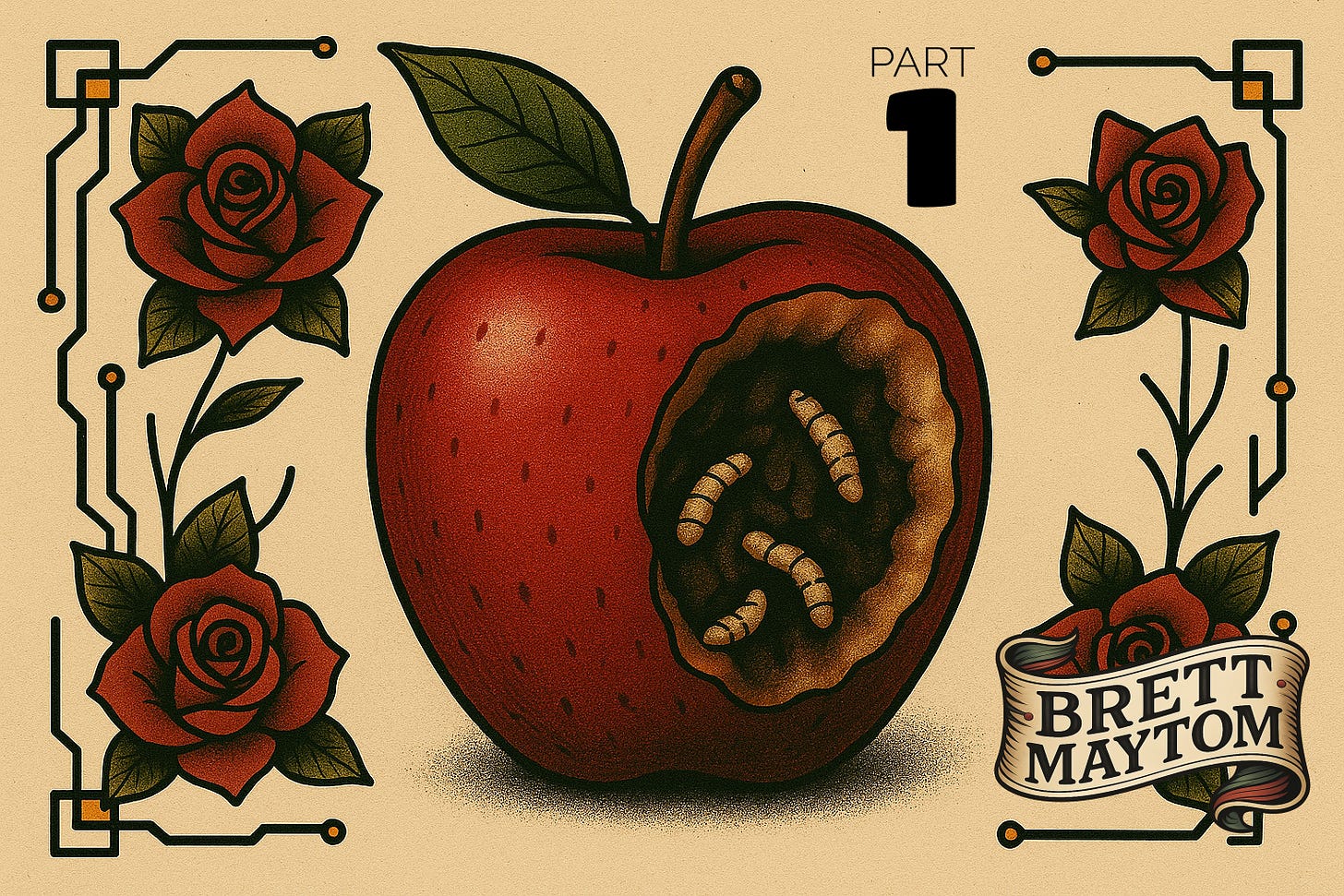Rotten Agile: Part 1 – Fragmented Camps, Conflicted Market
Fragmentation destroys coherence, and without coherence, no profession can mature.
Fragmentation destroys coherence, and without coherence, no profession can mature.
One of the most damaging forces in the agile world today is fragmentation. The market has splintered into rival camps each battling for influence, recognition, and commercial dominance. Every camp insists that their version of agility is the right one. In doing so, they’ve pulled the profession apart.
Even within Scrum there’s no unified voice. Scrum Alliance, Scrum.org, and Scrum Inc. each offer different certifications, interpretations, and training pathways. Then there are opportunistic players like ScrumStudy, who created their own “Scrum Body of Knowledge” (SBoK). Their version strays so far from Scrum’s roots that it actively contradicts the very principles it claims to promote. These differences aren’t academic, they are competing, often incompatible, models trading under the same name.
Across the broader agile landscape, the problem only deepens. Frameworks like SAFe, LeSS, Kanban, ICAgile, Disciplined Agile, and PMI-ACP all present different philosophies, practices, and credentialing schemes. While they often borrow the same language, the meanings don’t align. One framework may celebrate a practice that another condemns. What’s taught as “best practice” in one course is labelled “harmful” in another. The result is contradiction packaged as clarity.
This inconsistency breeds confusion and opens the door to misinformation. Instead of a maturing discipline, we have a commercial free-for-all. For every article offering guidance, another counters it. For every practitioner recommending one method, another publicly dismisses it. These aren’t productive debates, instead they’re turf wars. And they’re tearing the profession apart.
The cause is simple: no shared governance, no agreed-upon standards, and no external accountability. Anyone can create a framework, issue a credential, or claim authority without oversight, peer review, or consequence. The hope that professionalism would regulate the market has failed. Commercial self-interest filled the gap. Promotion replaced principle. Posturing replaced progress.
And many have built businesses on this dysfunction. Differences are sold as innovations. Their approach is presented as the truth; others, as dangerous. It’s not about improving practice, it’s about capturing market share. The result is a flood of conflicting messages, underqualified practitioners, and fatigued customers who no longer know who to trust.
Even Agile’s founders have spoken out. Kent Beck, co-author of the Agile Manifesto, called the certification boom dishonest; likening it to a pyramid scheme and describing it as “a cancer” on the movement. When Agile originators speak bluntly, it’s a warning worth heeding.
Agile is not a unified profession. It’s a contested marketplace, where alignment is seen as weakness and fragmentation is mistaken for choice. Instead of improving how we build products, we’re fighting over which brand of “agile” should win.
And we must own that. This dysfunction isn’t external because it’s built into the structure of the market itself.
At this point, the fragmentation isn’t accidental. It’s deliberate. It’s a business model. Too many empires rely on owning their slice of the market. They treat difference as threat and division as brand differentiation. There’s no incentive to unify, no will to align, and no shared sense of professional responsibility.
Practiqual™ is a clean reset. It’s not entering this contest. It’s stepping away from it. It rejects the noise, the turf wars, and the empire-building. Instead, it offers a new foundation. One where shared understanding is possible, legitimate differences are respected, and healthy businesses can still thrive. Without tearing the profession apart.
Practiqual™ sets up an ecosystem, not an empire. It is a community-owned and legally protected approach. Members shape it together for the good of the profession. Each is an independent business. They are free to price, deliver, and adapt in ways that make sense for their situation. At the same time, they follow a shared code of conduct, apply common principles, and contribute to open knowledge. This balance of independence and integrity removes exploitation. It ends turf wars. It restores professional respect. Practiqual is not about control. It is about moving forward, together.
Are you over the agile circus too?
I’m gathering voices who want to step off the merry-go-round. If that’s you, comment below or message me privately. Let’s talk about what’s next as I am in startup phase.
Series posts
Read other posts in this series

